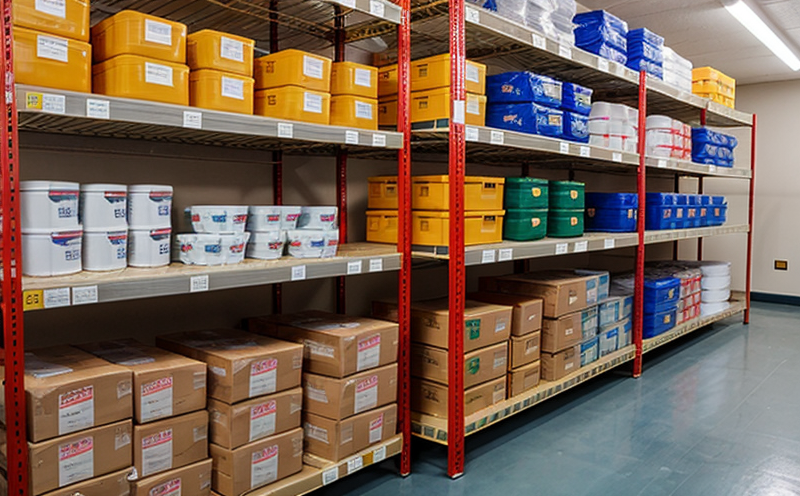API Thermal Stability Testing
In the pharmaceutical industry, ensuring product quality and safety is paramount. Among various testing protocols, API (Active Pharmaceutical Ingredient) thermal stability testing plays a critical role in confirming that an API remains stable under specified storage conditions over its shelf life.
This service involves subjecting APIs to controlled temperature and time conditions to assess their degradation rates and potential instability factors. The goal is to ensure the API maintains its chemical integrity, efficacy, and safety throughout the product lifecycle, from development through commercialization.
Thermal stability testing is a cornerstone of quality assurance for pharmaceutical manufacturers. It helps in understanding how different environmental conditions can affect the API’s physical and chemical properties over time. This information is essential for optimizing storage conditions, ensuring regulatory compliance, and enhancing product shelf life and reliability.
The primary instrument used in this process is an accelerated stability test (AST) oven, which simulates real-world storage scenarios under extreme temperatures to expedite the testing timeline while maintaining scientific rigor. The results of these tests are compared against known standards to validate the API’s stability.
During the testing process, samples undergo rigorous characterization using advanced analytical techniques such as high-performance liquid chromatography (HPLC) and differential scanning calorimetry (DSC). These methods provide quantitative data on degradation products and phase transitions, respectively. This information is crucial for determining the appropriate shelf life and storage conditions.
The testing protocol typically includes multiple runs at various temperatures to identify the optimal storage temperature that minimizes degradation without compromising efficacy. Compliance with international standards such as ISO 17025 ensures the reliability of our test results, thereby enhancing trust in our services among clients.
Our team of experts uses a combination of theoretical knowledge and practical experience to design comprehensive testing programs tailored to each client’s specific needs. This approach not only adheres to regulatory requirements but also helps in identifying potential risks early on, allowing for proactive mitigation strategies.
Applied Standards
- ISO 17025: Ensures the technical competence of testing and calibration laboratories.
- ICH Q1A (R2): Provides guidelines for determining stability with respect to chemical quality attributes.
- ASTM D6478: Standard practice for accelerated testing of materials using temperature cycling.
Customer Impact and Satisfaction
Thermal stability testing significantly enhances customer satisfaction by ensuring that APIs meet stringent quality standards. By providing accurate data on degradation rates, our clients can make informed decisions regarding storage conditions and packaging materials.
Our services contribute to the successful commercialization of new products by confirming their stability under various environmental conditions. This helps in achieving regulatory approval more efficiently, which is critical for market entry timelines.
- Improved Product Quality: By identifying degradation early, clients can adjust formulation or processing methods to enhance product performance.
- Enhanced Regulatory Compliance: Adherence to international standards ensures that products meet regulatory requirements and are safe for use in the market.
- Increased Shelf Life: Understanding the thermal stability of an API allows manufacturers to extend shelf life, which can lead to cost savings and increased profitability.
Use Cases and Application Examples
API thermal stability testing is widely applicable across various pharmaceutical sectors. Here are some specific use cases:
- New Drug Development: Early identification of stability issues can prevent costly failures later in the development process.
- Manufacturing Optimization: Understanding how storage conditions affect APIs helps in optimizing manufacturing processes and reducing waste.
- Packaging Selection: By determining the optimal storage temperature, clients can select appropriate packaging materials that extend shelf life.





